 I don’t usually feel compelled to write a proper review of every volume of a given manga series. There are too many of them, to be honest, and I’m usually too lazy. I have to make an exception for Astral Project (CMX), written by marginal (Garon Tsuchiya, an Eisner winner for Old Boy) and illustrated by Syuji Takeya. For one thing, the series is only four volumes long, which is well within even my parameters for sloth. For another, it’s amazing and constantly surprising, right up to the finish.
I don’t usually feel compelled to write a proper review of every volume of a given manga series. There are too many of them, to be honest, and I’m usually too lazy. I have to make an exception for Astral Project (CMX), written by marginal (Garon Tsuchiya, an Eisner winner for Old Boy) and illustrated by Syuji Takeya. For one thing, the series is only four volumes long, which is well within even my parameters for sloth. For another, it’s amazing and constantly surprising, right up to the finish.
To summarize, a young man’s sister commits suicide. He finds a CD of little-known jazz music among her belongings and takes it as a keepsake. When he plays it, his spirit leaves his body. When he leaves his body, he meets a motley crew of other astral travelers, finding companionship, suspicion, and the possibility of romance. As Masahiko tries to understand the circumstances of his sister’s death, he finds that Asami’s suicide was just a small part of a much larger mystery.
After reading the third volume, I had no idea how Tsuchiya was going to wrap things up with so many narrative elements in play – mysteries, conspiracies, secrets, complex relationships, and so on. He manages it with an unexpected display of economy. Everything that really needs to be explained is explained, though it never feels like it’s being explained, if that makes any sense.
So many plot threads in play could come cross as frantic, and that’s not always bad. I often find Naoki Urasawa’s 20th Century Boys (Viz) a little on the frantic side, and that’s one of the things I really like about the series. But Astral Project takes its cues from its spiritually adrift protagonists, floating from one thread to another, seeing what there is to be seen. (I should note that I don’t think Takeya is nearly as good an illustrator as Urasawa is, but the pages are never less than competent, and Takeya can hit some nice highs along the way.)
The potential for hubbub is also mitigated by the philosophizing, which ends up being refreshingly character-driven. The underlying theories that inform the work as articulated in this last volume are a little chilling, more than a little scathing, and unexpectedly hilarious. It’s all about real versus virtual life. Having witnessed one online platform clogged to dysfunction by people responding to a short-term failure of another online platform just yesterday, Tsuchiya’s conspiracy theories also seem unnervingly plausible.
But whether you agree with Tsuchiya or not, Astral Project is just a joy to read. It’s smart, rangy in its interests, funny, suspenseful, and even a little sweet when circumstances demand it be so. If your resistance to manga is rooted in its sometimes juvenile concerns and the daunting length of some highly regarded series, then I can’t recommend this book strongly enough.
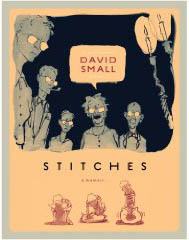 In a given year, you usually get one original graphic novel as ambitious and accomplished as David Mazzucchelli’s
In a given year, you usually get one original graphic novel as ambitious and accomplished as David Mazzucchelli’s  This is one of those weeks when Viz decides to release loads and loads of manga upon an unsuspecting public, including many of their very best shôjo titles. Those include:
This is one of those weeks when Viz decides to release loads and loads of manga upon an unsuspecting public, including many of their very best shôjo titles. Those include: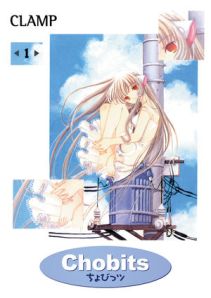 Dark Horse continues its CLAMP collection project with the
Dark Horse continues its CLAMP collection project with the  I’ve been meaning to read Makoto Tateno’s Yellow for ages, as it sometimes shows up on those lists of yaoi titles gay guys might like. DMP offers
I’ve been meaning to read Makoto Tateno’s Yellow for ages, as it sometimes shows up on those lists of yaoi titles gay guys might like. DMP offers  Oh, glorious day! Tokyopop finally releases the fifth volume of Ai Morinaga’s pointed and hilarious
Oh, glorious day! Tokyopop finally releases the fifth volume of Ai Morinaga’s pointed and hilarious 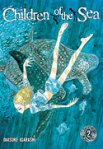 Viz has been inching me towards financial ruin for ages now, but they really give it their best effort this time around. There are the second volumes of Fumi Yoshinaga’s
Viz has been inching me towards financial ruin for ages now, but they really give it their best effort this time around. There are the second volumes of Fumi Yoshinaga’s 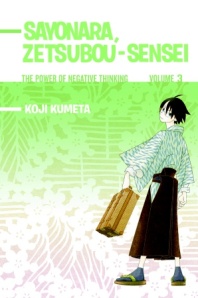 It’s a hefty week for Del Rey. I’m most eagerly anticipating
It’s a hefty week for Del Rey. I’m most eagerly anticipating 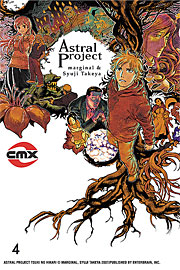 Before I delve into
Before I delve into 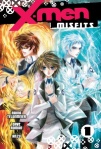 Del Rey continues with the manga-fication of Marvel’s mutant franchise with
Del Rey continues with the manga-fication of Marvel’s mutant franchise with 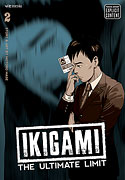 I’m looking forward to reading
I’m looking forward to reading 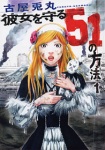 Of greatest interest to me is Usumaru Furuya’s
Of greatest interest to me is Usumaru Furuya’s  On the Viz front, there are two new Shonen Jump titles, one by the creative team behind Death Note. Tsugumi Ohba and Takeshi Obata reunited for Bakuman, about two students who dream of becoming successful manga-ka.
On the Viz front, there are two new Shonen Jump titles, one by the creative team behind Death Note. Tsugumi Ohba and Takeshi Obata reunited for Bakuman, about two students who dream of becoming successful manga-ka. 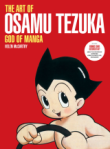 I’m not sure if this was announced first at the convention or if I just missed it when mentioned elsewhere, but I’m also looking forward to getting my hands on a copy of Helen McCarthy’s
I’m not sure if this was announced first at the convention or if I just missed it when mentioned elsewhere, but I’m also looking forward to getting my hands on a copy of Helen McCarthy’s 
 The thing I like best about Astral Project (CMX) is that it’s only kind of about any of the things it’s purportedly about.
The thing I like best about Astral Project (CMX) is that it’s only kind of about any of the things it’s purportedly about.  I’ll begin my look at
I’ll begin my look at  With that off my chest, I can look to the future, which includes a new series from Yuji Iwahara,
With that off my chest, I can look to the future, which includes a new series from Yuji Iwahara,  I suspect the impact of its conclusion will be washed away in a sea of Fruits Basket tears, but I’ll also miss
I suspect the impact of its conclusion will be washed away in a sea of Fruits Basket tears, but I’ll also miss